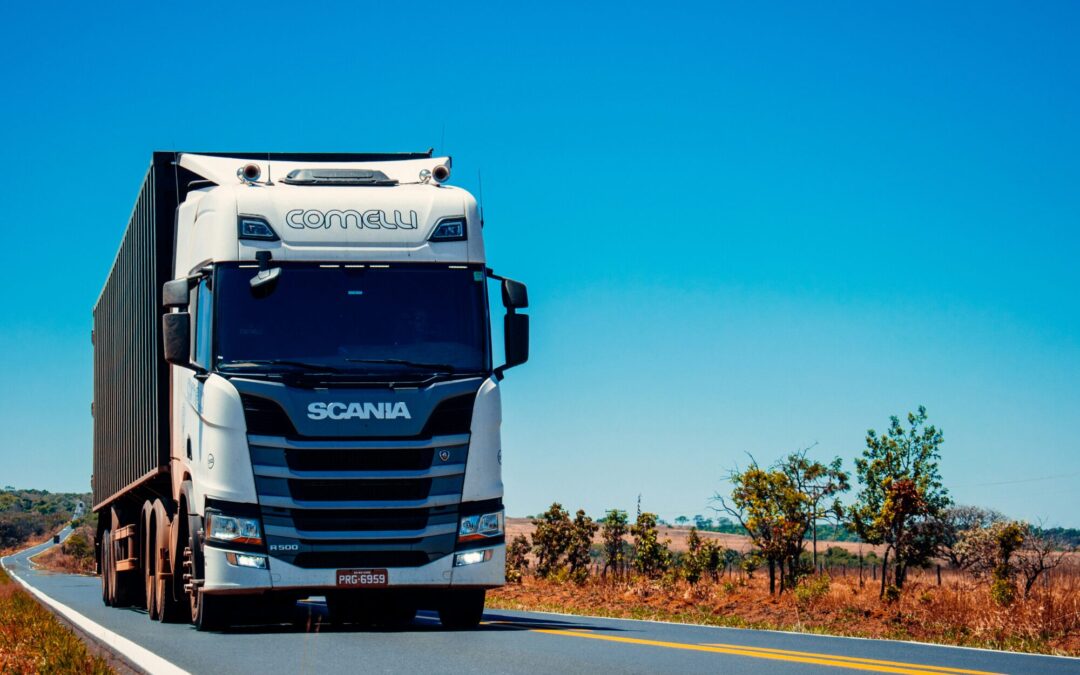An insight into the e-mobility industry with a focus on trucks
Electromobility in heavy-duty transport is becoming increasingly important as it makes a significant contribution to reducing CO₂ emissions and achieving EU climate targets. Currently, electric trucks (e-trucks) are making remarkable progress in terms of technology, infrastructure and strategic partnerships.
Technological innovations in e-trucks
Renowned manufacturers such as Renault Trucks are driving the development of e-trucks. Since November 2023, the plant in Bourg-en-Bresse has been producing the electric E-Tech models, which are specially designed for urban and regional distribution transport. These vehicles are characterised by a high range and efficient performance, making them a sustainable alternative to conventional diesel trucks.
Volvo is also embracing advanced technologies and has announced that it will equip the upcoming ES90 model with Nvidia’s Drive AGX Orin supercomputer. This system delivers an impressive 508 trillion operations per second of computing power, which supports the integration of AI-based safety features and efficient battery management.
Infrastructure developments for e-trucks
The successful integration of electric trucks into freight transport requires a suitably developed charging infrastructure. Companies such as reev offer holistic solutions that are specifically tailored to the requirements of heavy-duty transport.
The electrification of heavy-duty transport is crucial for the EU’s climate targets, but it poses major challenges for the grid infrastructure. reev offers:
- Intelligent energy management to optimise charging processes
- Integration of renewable energies to reduce emissions
- Energy storage solutions to relieve the burden on the grid
- Dynamic load management to reduce costs
These measures can optimise grid utilisation and sustainably advance the widespread use of electric trucks. In particular, dynamic load management plays an important role in reducing operating costs and ensuring efficient energy distribution.
Strategic partnerships and collaborations
The further development of e-trucks is largely driven by collaborations between technology companies and vehicle manufacturers. At CES 2025, Nvidia announced that Toyota, Aurora and Continental will equip their vehicle fleets with Nvidia’s Drive technology. This collaboration aims to implement autonomous driving functions in electric vehicles, including e-trucks.
Aurora and Continental have also entered into a long-term partnership to develop autonomous electric trucks on a large scale. This partnership will use Nvidia’s Drive Thor system-on-a-chip (SoC), which was designed specifically for the requirements of autonomous vehicles. Series production of these vehicles is planned for 2027, with the aim of revolutionising autonomous freight transport in the US.
Challenges and outlook
Despite the positive developments, e-trucks face challenges, particularly with regard to charging infrastructure and high acquisition costs. Studies emphasise the need for intelligent charging management and the expansion of the power grid to meet the increasing energy demand. Flexible charging and vehicle-to-grid technologies could help to facilitate the integration of e-trucks into the existing energy system.
Overall, it is clear that the electrification of heavy-duty transport is on a promising path. Through continuous technological innovation, infrastructure development and strategic partnerships, the transition to sustainable transport solutions will continue to advance.
Start Your EV Business now!
Discover the intelligent solutions from reev!
